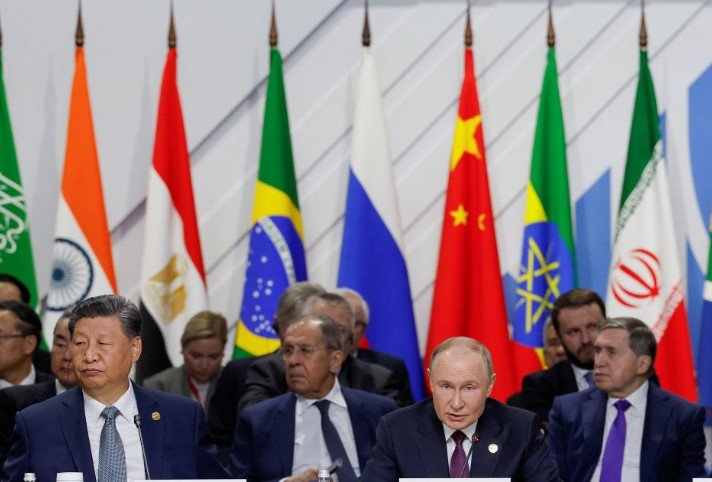Leaders from Arab and Islamic nations gathered in Doha on September 15, 2025, for an emergency summit to address Israel’s recent air strike on Hamas leaders in Qatar’s capital. The attack, which killed six people including five Hamas members and a Qatari security officer, has sparked widespread outrage and calls for a unified response against what participants describe as escalating aggression.
Background on the Israeli Strike
The strike happened on September 9, 2025, targeting a building in Doha’s Katara district where top Hamas officials were meeting. Israel confirmed the operation, stating it aimed at key figures to pressure the group into a ceasefire deal amid the ongoing Gaza conflict.
Reports indicate the attack used precision munitions, but it still caused civilian casualties. Hamas claimed its main negotiating team survived, though the son of chief negotiator Khalil al-Hayya was among the dead. This marked a bold move by Israel into a neutral mediator’s territory, raising questions about future peace talks.
Qatar, a key player in hostage negotiations, has hosted Hamas’s political office since 2012. The incident disrupted ongoing efforts to end the war, which has raged since October 2023, claiming tens of thousands of lives.

Key Targets and Casualties
Israel’s operation focused on high-profile Hamas members believed to be hindering peace efforts. The strike highlighted tensions in the region, with both sides trading accusations.
Here is a table summarizing the reported targets and outcomes:
| Name | Role in Hamas | Status After Strike |
|---|---|---|
| Khalil al-Hayya | Acting Leader and Chief Negotiator | Survived |
| Khaled Mashaal | Former Head | Fate Unconfirmed |
| Zaher Jabarin | Finance Chief | Believed Targeted, Status Unknown |
| Other Members | Various Roles | Five Killed, Including al-Hayya’s Son |
This list draws from Israeli statements and Hamas reports, showing the strike’s intent to weaken the group’s leadership abroad.
The Qatari security officer’s death added to the diplomatic fallout, as Qatar emphasized the violation of its sovereignty.
Analysts note this was not Israel’s first such action outside Gaza, but striking a U.S. ally like Qatar escalated risks.
Summit Agenda and Discussions
The Arab-Islamic summit, held in Doha, brought together leaders from over 50 countries to form a collective stance. Qatari Prime Minister Sheikh Mohammed bin Abdulrahman Al Thani opened the meeting by criticizing Israel’s actions and urging global accountability.
A draft resolution condemned Israel’s “hostile acts” and called for international measures to protect regional stability. Discussions focused on diplomatic pressure rather than military options, as experts say armed responses are unlikely due to power imbalances.
Participants reviewed ways to support Gaza, including aid delivery and ceasefire pushes. The summit also addressed broader issues like the occupation and settlement expansions.
One key point was the need for unity among Arab and Islamic states, which have often been divided on how to handle the conflict.
International Reactions
The United States expressed disapproval, with President Donald Trump stating Qatar is a vital ally and warning against rash attacks. Secretary of State Marco Rubio, en route to Israel, echoed concerns about the strike’s impact on alliances.
The UN Security Council condemned the action, stressing de-escalation and solidarity with Qatar. European nations like those in the EU called for restraint, while some Middle Eastern countries vowed stronger support for Palestine.
Israel defended the strike, with President Isaac Herzog arguing it was essential for security. However, global criticism mounted, with calls to end what many see as unchecked aggression.
Public sentiment on social media showed mixed views, with some praising Israel’s boldness and others decrying the violation of sovereignty.
Potential Implications for Peace
This event could derail fragile negotiations, as Qatar’s role as mediator is now in question. With Hamas leaders possibly relocating, talks might shift to other venues like Egypt or Turkey.
The strike fits into a pattern of Israel’s targeted operations, similar to past actions against Hezbollah and Iranian figures. It comes amid rising tensions in Lebanon and the West Bank, where violence has spiked in 2025.
Experts predict the summit may lead to economic boycotts or UN resolutions, but real change depends on U.S. involvement under the new Trump administration.
- Increased diplomatic isolation for Israel if more countries join condemnations.
- Potential for renewed ceasefire efforts, possibly with U.S. pressure.
- Risks of broader conflict if retaliatory actions occur.
The Gaza war has displaced millions and caused a humanitarian crisis, with over 40,000 reported deaths by mid-2025. This summit aims to rally support for immediate aid and long-term solutions.
Looking Ahead
As the summit concludes, attention turns to any concrete outcomes, such as joint statements or aid commitments. The event underscores the need for balanced international approaches to Middle East conflicts.
Readers, what do you think about the summit’s potential impact? Share your thoughts in the comments and spread this article to keep the conversation going.
